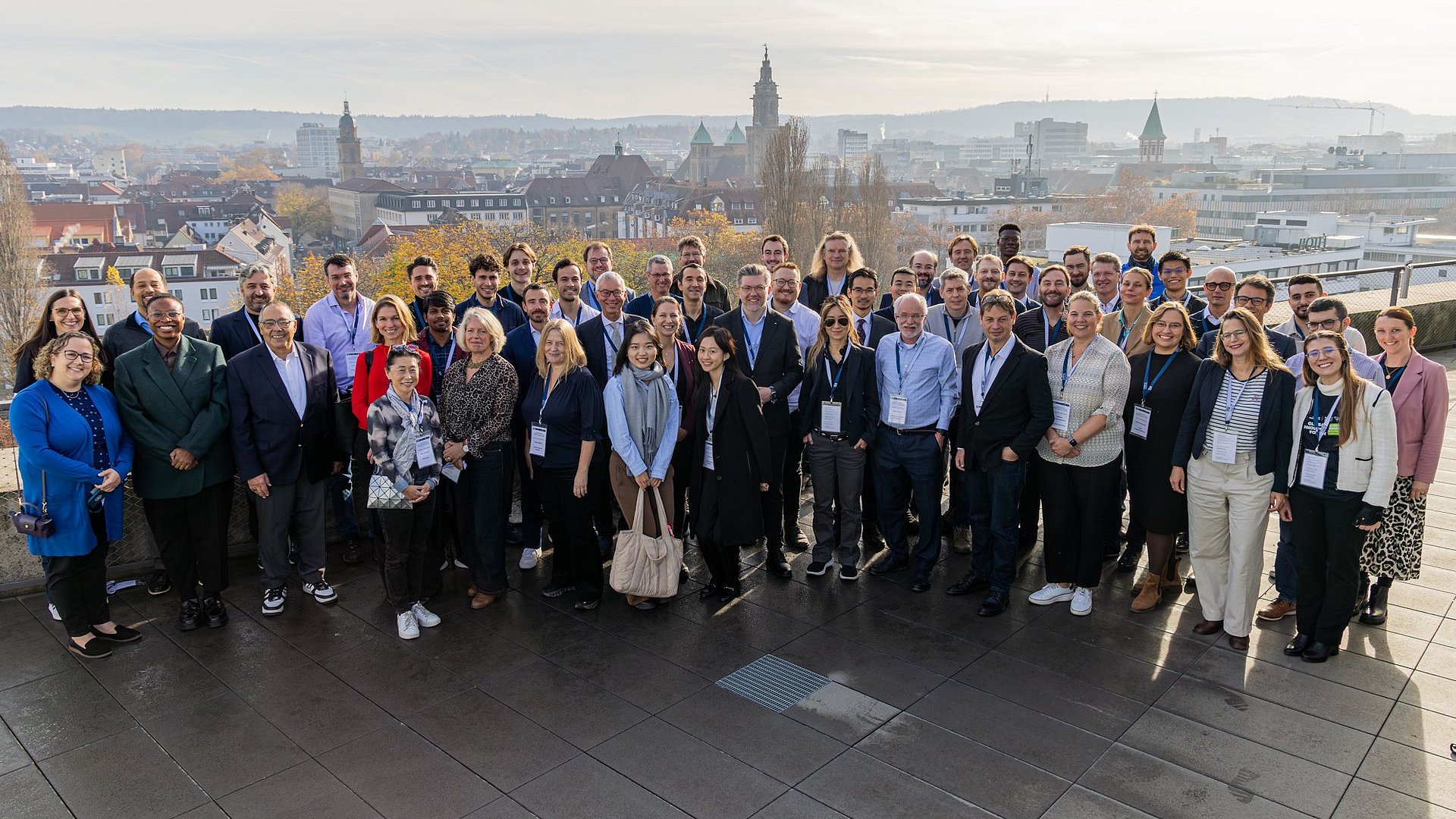At a time when the academic world is threatened by storms and high waves, a safe ark is needed more than ever. Fortunately, the Global Technology Forum of the Technical University Munich at Campus Heilbronn provides just such an ark. Professors and scientists from all over the world have set sail and come to the city of wine, education and artificial intelligence to forge plans for a sustainable future.
 Imagis
Imagis For the third time, TUM and the universities of excellence from Jerusalem, Oxford, Stanford, Paris, Zurich and the two technical universities from Singapore gathered at the science center 'Experimenta' in Heilbronn. TUM Campus Heilbronn had issued the invitation, and more than 80 guests followed the beacon from the city of 'Käthchen', a novel character by Heinrich von Kleist. Professor Ali Sunyaev, Vice President TUM Campus Heilbronn , welcomed the researchers who had travelled from afar with joy and a touch of pride: "This forum is based on cooperation: scientific dialogue, practical insights and new networks pave the way for sustainable innovations."
The Joint Global AI Research Hub was created based on this fundamental idea and the desire to offer the free research community a safe haven. It consists of the universities of excellence ETH Zürich, Hebrew University of Jerusalem (HUJI), HEC Paris, Nanyang Technological University (NTU), National University of Singapore (NUS), Stanford University, University of Oxford and, of course, TUM Campus Heilbronn. The participants had four challenging days ahead of them: "Let's make the most of this opportunity with inspiring lectures, exciting discussions and shared moments! Global mindsets - Great ideas - Real impact," announced Sunyaev.
Arrival With Hurdles, Research Without Borders
Once the scientists had shaken off their jet lag and seasickness, they were given a brief overview of everything Heilbronn has to offer. The managing director of the Dieter Schwarz Foundation, Professor Gunther Friedl, gave an overview of Heilbronn's unique ecosystem: from primary school to programming school 42 to the Innovation Park Artificial Intelligence (IPAI).
In the subsequent panel, moderated by Jingui Xie, Professor of Business Analytics at TUM Campus Heilbronn, the participants discussed what an ideal AI-driven future might look like. The voice of business was represented by VDI President Lutz Eckstein, who was particularly concerned with the explainability and integration of AI-related learning content. Professor Yejin Choi from Stanford and Professor Ali Sunyaev spoke on behalf of the research community. Choi sees access for all and a redistribution of power - away from large language models (LLMs) and towards small language models (SLMs) - as basic prerequisites for the sustainable use of AI.
Ali Sunyaev warned: "AI is not a solution for everything. A knife can be a helpful tool, but in the hands of the wrong person it becomes a weapon. We must promote responsible use." And for keynote speaker Professor Joachim Spatz of the Max-Planck-Institute for medical research, that also includes sustainable use: reducing energy consumption is essential for him. The panel was rounded off by Fikile Brushett, professor of chemistry at the Massachusetts Institute of Technology (MIT). He was awarded the Dieter Schwarz Research Courageous Grant as part of the GTF, which opened doors to funding and collaboration with TUM. As a 'non-specialist', he is fascinated by the possibilities of recreating and testing molecules.
Challenge and Encourage
After the subsequent tour of the science center 'Experimenta' and the 'Bildungscampus', the scientists were given a brief insight into science transfer initiatives within the ecosystem. The EIC Pathfinder program provides targeted funding of up to €4 million for high-risk start-ups. TUM Venture Labs sees itself as a compass for scientists, taking them by the hand and introducing them to the world of start-ups.
After all the inputs, it was finally time for outputs: the first round of workshops began, and in the session on 'AI in Education' initial insights were gained into the opportunities and challenges of digital support in learning contexts, while in the session on 'AI in Healthcare', led by TUM Professor Luise Pufahl, researchers discussed the use of process mining, AI-supported decision-making in intensive care units, and the risks posed by digital assistants.
To round off the day, regional food and wine were served, additional guests from the business community joined, and in the relaxed atmosphere of the Albrecht Kiessling Winery the Academica met with regional decision-makers from SAP, Schunk, the Schwarz Group, the TUM Venture Labs, IPAI, the Dieter Schwarz Foundation, Robert Bosch GmbH, Zeiss, and Datev, allowing the applications to find their way into the scientific community.
Insights and Outlooks
'TUM must stay outside' was the motto on the second morning. In internal workshops, all other partners of the Joint Global Research AI Hub discussed possible collaborations and research approaches that go beyond the current horizon. The group then experienced how visions become reality at the Artificial Intelligence Innovation Park (IPAI). Afterwards, they went from the laboratory to the factory at the Schunk company in Brackenheim-Hausen to bring together cutting-edge research and regional SMEs.






